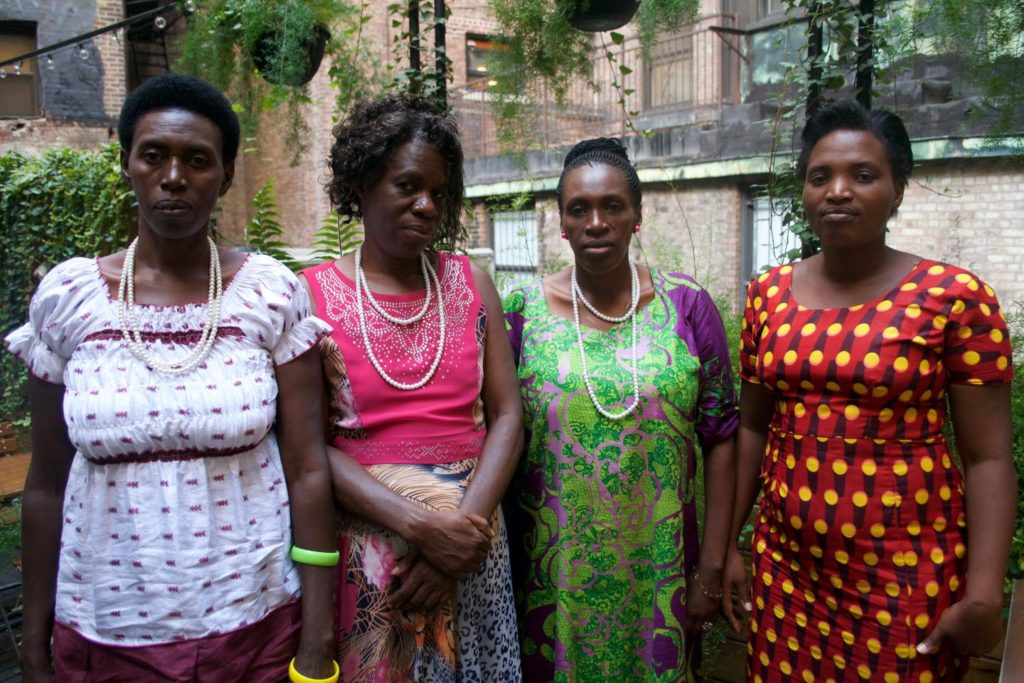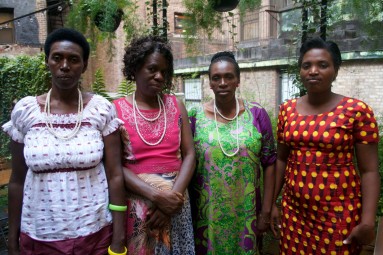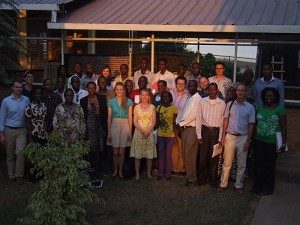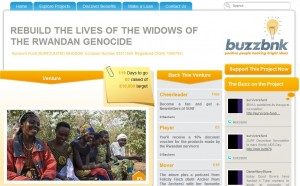
Rwandan Genocide Survivors Urge U.N. Action on Sexual Violence..
“We keep hearing that it’s still happening, that rape is used as a weapon, as a tool of genocide and war. It hurts us a lot.”
BY Lucy Westcott, Newsweek.
Four women who changed the course of history by testifying in a case that resulted in the first-ever conviction for genocide are urging the United Nations to take action against sexual violence across the world.
Serafina Mukakinani, Victoire Mukambanda, Cecile Mukarugwiza (all of which are beneficiaries of SURF’s Foundation Rwanda programme) and Godeliève Mukasarasi, are the subjects of The Uncondemned, a new documentary that recounts the trial of Jean-Paul Akayesu, the first person to be convicted of genocide and using rape as a weapon of war during the 1994 Rwandan genocide. The International Criminal Tribunal for Rwanda, set up to prosecute humanitarian law crimes in the aftermath of the genocide, determined that in the case of Akayesu, former mayor of small commune Taba, rape and sexual violence “constitute genocide in the same way as any other act as long as they were committed with the specific intent to destroy, in whole or in part, a particular group, targeted as such.”
In The Uncondemned, the four women speak about the difficulty and power of being witnesses, and the realization that sexual violence was being waged against women in other parts of the world, including Bosnia, which from 1992 to 1995 suffered through its own violent conflict. More than 20 years later, the women say there’s a lack of support for the children who were born from rape during the Rwandan genocide.
“There are consequences of sexual violence in conflicts. The first is HIV and AIDS, [but also] kids who are born from rape, unwanted pregnancies,” Mukasarasi tells Newsweek through a translator. “Now they are young adults. The important thing is to make sure the U.N. creates another resolution to support the kids who are born from rape. If they are really working hard to prevent such things happening it has to be there. because it’s still happening in other parts of the world.”
“When you’re talking about a woman who has been through that experience, the mom has to be with the child,” adds Mukasarasi, who founded Sevota, a group that supports those widowed and orphaned in the genocide. “You don’t have to separate them, they go through the same experience. They are all affected.”

Sexual violence and the use of rape as a weapon of war “has existed for as long as there has been conflict,” U.N. Women said in a 1998 report. The horror continues today in countries such as the Democratic Republic of the Congo, the Central African Republic, Sudan and Syria, where thousands of women and girls belonging to the Yazidi ethnic minority group remain in sexual slavery under the Islamic State (ISIS) militant group. In Nigeria, Boko Haram released 21 captured girls earlier this week, but dozens remain under their control. The small handful of convictions since Akayesu shows just how difficult it is to prosecute this crime.
“We keep hearing that it’s still happening, and that rape is used as a weapon, as a tool of genocide and war. It hurts us a lot,” says Mukambanda. “We feel we are the ones who are able to speak out and…to be a voice for them.”
“We want the U.N. to pay attention to those who are still going through that experience and make sure they do take strong measures to protect them,” says Mukambanda. She says she is still deeply psychologically and physically affected by being raped during the genocide, which resulted in a son who died shortly after she gave birth. “This is something that is still happening.”
All four women are in New York for the first time and visited the U.N. on Wednesday for a screening of the documentary. Being at the U.N., they say, is especially important given the organization’s work of recognizing sexual violence as a weapon of war, and the role of women in peace negotiations, through a number of resolutions.
“Rwandan women have played a big role to make sure that sexual violence in conflict became known as a crime against humanity,” says Mukasarasi. “For us to be in the U.N. is a way of recognizing the hard work and what we have done.”
The Uncondemned is showing in select U.S. theaters until the end of the year. The film opens in New York City’s Sunshine Cinema on October 21.



